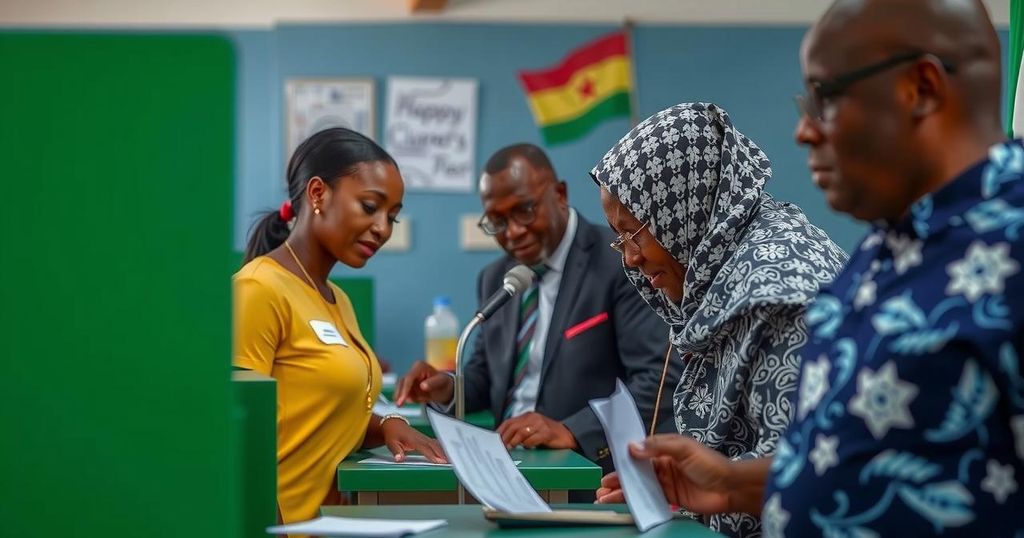Senegalese Elections: A Determining Factor for President Faye’s Reforms

Senegal held parliamentary elections on Sunday to determine if President Bassirou Diomaye Faye can implement key reforms. With over seven million voters selecting 165 lawmakers, Faye’s party currently lacks a majority. The elections follow significant political unrest and rising inflation, particularly affecting the country’s youth. Faye’s party, PASTEF, is combating a formidable opposition, making the impending results crucial to his reform plans.
Dakar, Senegal – On Sunday, Senegal conducted parliamentary elections pivotal for determining the capacity of President Bassirou Diomaye Faye to implement his promised reforms. With over seven million registered voters selecting 165 lawmakers in the National Assembly, Faye’s party, PASTEF, currently lacks a majority to facilitate his vision. Elected in March with 54 percent of the vote on an anti-establishment platform, Faye faces significant challenges in enacting reforms aimed at curbing corruption, reassessing foreign fishing permits, and ensuring local populations benefit more from the nation’s natural resources. The elections followed political unrest spurred by Faye’s dissolution of the previous opposition-led parliament, escalating tensions amid a backdrop of rising inflation and youth discontent in Senegal, where over 60 percent of the populace is under 25 years of age.
The recent parliamentary elections in Senegal are significant as they hold the potential to either empower or hinder President Faye’s ability to enact the reforms he promised during his presidential campaign. The political climate in Senegal has been tense, marked by violence and protests stemming from perceptions of political repression. With a large proportion of the electorate consisting of young individuals facing economic adversity, the outcomes of these elections could profoundly influence the future socio-political landscape of the nation. Faye’s quick rise to power, following the backing of Ousmane Sonko, demonstrates the shifting political dynamics that resonate with Senegalese voters seeking change.
In conclusion, the parliamentary elections in Senegal are a critical juncture for the nation’s democratic progress and economic reforms. As President Faye vies for a majority in the National Assembly to implement his reform agenda, the electorate’s response will be indicative of the public’s aspirations amid socio-economic challenges. The election results will unfold gradually, signaling either a pathway to change or further political hurdles for the newly elected leader.
Original Source: www.pbs.org






